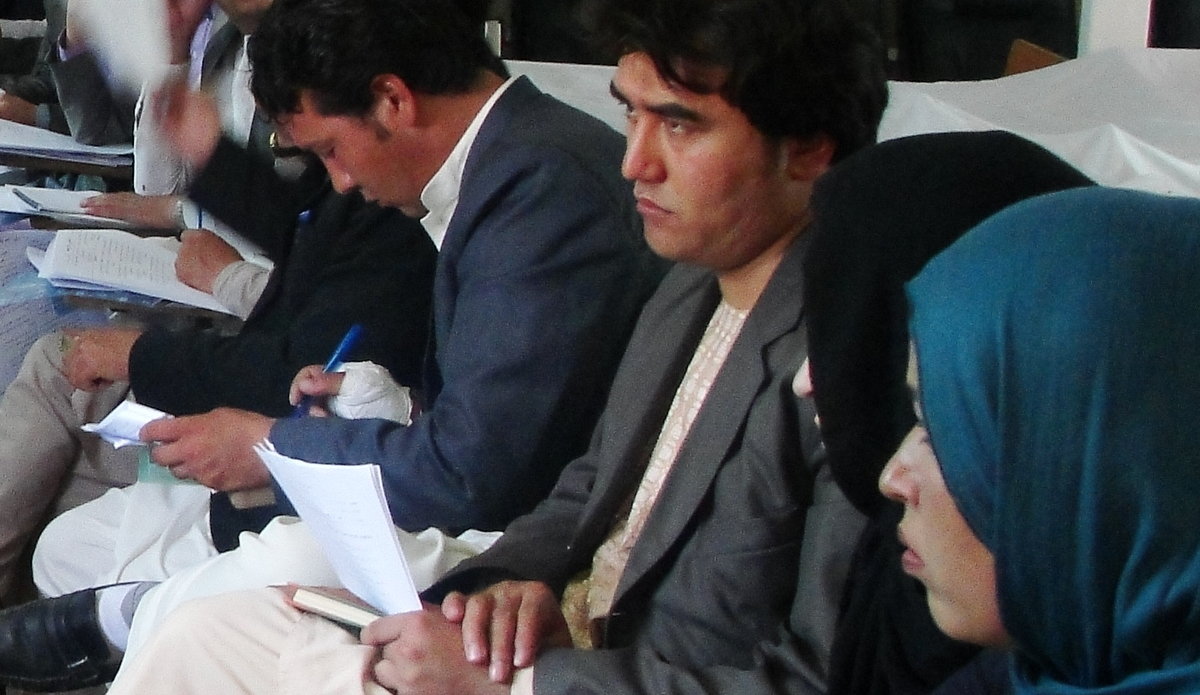Ghazni youth discuss challenges and way forward to peaceful future
GHAZNI - The active participation of young Afghans in peace-building is necessary for creating a more stable, inclusive and peaceful region, said participants at a UN-backed symposium in the south-eastern province of Ghazni.
In the event, young Afghans from across Ghazni, along with journalists, government officials and civil society members, came together to discuss the role of youth in building peace in their communities and to strategize on ways young Afghans can participate fully in Afghanistan’s political and social life.
“Peace is a long-standing wish of every Afghan, and as young Afghans make up a majority of the population, they can make change if their potential is properly leveraged,” said Mohammad Ishaq Jahangir, a civil society representative speaking at the symposium.
While young Afghans in Ghazni face significant challenges, including illiteracy and unemployment, there is a growing recognition that any peace process in Afghanistan must be inclusive and must therefore involve young people. That concept is reaffirmed by Security Council Resolution 2282 (2016), which recognizes the importance of youth in deterring and resolving conflict.
Afghanistan has one of the largest youth populations in the world. According to some estimates, three-quarters of the country’s population is below the age of 30, making young people a vital demographic. Young Afghans are also among the most affected by the protracted conflict, grappling with high levels of illiteracy, unemployment and poverty.
For Mohammad Asif Rasooli, a university lecturer speaking at the symposium, peace and security mean a life free from violence. He said young Afghans must be involved in any peace process because they are one of the populations most affected by the conflict in the country.
Abdul Wasi, another participant at the event, said peace is an essential condition for all development, from the economic to the social to the political. “Youth’s role in that context is crucial,” he said.
Nahid Muradi, a university lecturer, urged the involvement of youth in all peace efforts. “Young Afghans can bridge the gap between traditional and modern views,” she stressed. “We must not ignore young voices; instead, we must give them opportunities to use their expertise for peace.”
Other participants expressed similar sentiments, and all those attending affirmed the importance of raising awareness about how young Afghans can help deter and resolve conflict by taking initiative in their communities and speaking out for the peaceful resolution to local conflict.
The Ghazni symposium is one of many other similar programmes, events and initiatives that have emerged as a result of UNAMA reaching out to a range of groups across the country, creating spaces, both physical and on social media, for them to come together and discuss issues that are of critical importance to them and to strategize on the best way forward.
One way that UNAMA reaches out is through its strong partnerships with local media outlets across the country. At almost every UNAMA-backed event, local media partners not only record the discussion and debate for later rebroadcast, but also create new programmes around the issues that are raised, extending the discussion and creating new opportunities for local voices to be heard on issues such as peace, reconciliation, government transparency, human rights and rule of law.
The event, organized by UNAMA’s Gardez regional office, was recorded by local media outlet Ghaznavian Radio and broadcast later to an audience estimated at 200,000 people in Ghazni and in the neighbouring provinces of Paktika, Maidan Wardak and Zabul.
Ghazni is situated in the country’s south-eastern region. The province, like many of the other areas of Afghanistan, is mainly hilly and interspersed with seasonal river valleys. It is populated mostly by rural, agricultural communities.
UNAMA is mandated to support the Afghan Government and the people of Afghanistan as a political mission that provides 'good offices' among other key services. 'Good offices' are diplomatic steps that the UN takes publicly and in private, drawing on its independence, impartiality and integrity, to prevent national and international disputes from arising, escalating or spreading.
UNAMA also promotes coherent development support by the international community; assists the process of peace and reconciliation; monitors and promotes human rights and the protection of civilians in armed conflict; promotes good governance; and encourages regional cooperation.
 UN
UN







